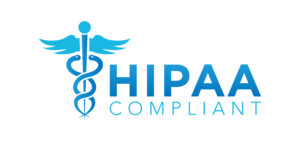In today’s digital age, owning a medical practice without robust cybersecurity measures is a risky move. Many small practices underestimate the need for cybersecurity, assuming they are too insignificant to be targeted. However, this couldn’t be further from the truth. In this article, we’ll explore the critical importance of cybersecurity for all medical practices, regardless of their size, and why complying with HIPAA regulations is non-negotiable.

HIPAA Fines and the Cost of Non-Compliance
One of the primary reasons why all medical practices, no matter their size, need to invest in cybersecurity is the potential for substantial HIPAA fines. The Health Insurance Portability and Accountability Act (HIPAA) imposes strict regulations on healthcare providers to protect patient privacy and data security. Violating these regulations can result in significant financial penalties.
HIPAA fines can reach up to $50,000 per violation. For a small medical practice, this could be financially crippling. These fines are not limited to large healthcare organizations; even the smallest practices can find themselves in hot water if they fail to meet cybersecurity standards. To protect your practice and your patients, you must invest in cybersecurity measures.

Securing Electronic Patient Records
In the modern healthcare landscape, patient records are primarily stored electronically. This includes everything from medical history and treatment plans to billing information and contact details. It is your responsibility to safeguard this sensitive data from cyber threats. Any electronic device that holds patient records must be secured.
This includes not only computers but also tablets, smartphones, and any software that accesses or stores patient information. Cybercriminals actively target these devices to gain access to valuable patient data. To ensure patient confidentiality and protect your practice, it is essential to have strong cybersecurity measures in place.

Employee Training for Identifying Cyber Threats
Cybersecurity isn’t solely about investing in the latest technology or tools; it also involves educating your staff. Employees should be trained to identify and respond to cyber threats effectively. Phishing emails, malware, and ransomware attacks are common tactics employed by cybercriminals. Without proper training, your staff may inadvertently become the weak link in your cybersecurity defense.
Regular training and awareness programs are crucial to prevent data breaches and protect your practice from costly HIPAA violations. Empowering your employees to recognize and report suspicious activities can make a significant difference in your cybersecurity posture.

Protecting Patients, Reputation, and Business
Cybersecurity is not just about avoiding HIPAA fines; it’s about protecting your patients, your practice’s reputation, and the very existence of your business. Patients trust healthcare providers to keep their sensitive information secure. A data breach can erode that trust and result in patients seeking care elsewhere.
Furthermore, a data breach can tarnish your practice’s reputation, making it difficult to attract new patients and retain existing ones. The financial repercussions of a data breach can be devastating, leading to lawsuits, loss of revenue, and potentially the closure of your practice.
In conclusion, regardless of the size of your medical practice, investing in cybersecurity is a critical step to protect your patients and your business. HIPAA compliance is not negotiable, and the potential consequences of non-compliance are severe. By securing electronic patient records, providing employee training, and prioritizing cybersecurity, you can safeguard your practice, maintain your reputation, and ensure the trust and safety of your patients. Don’t underestimate the importance of cybersecurity – it’s a necessity in today’s healthcare landscape. Get HIPAA compliant to protect your practice and the well-being of your patients.

